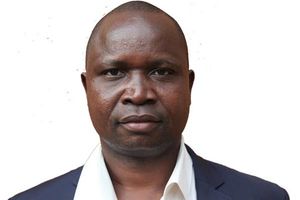
Peter Cromwell Okello
In the drama of politics, Mr Chris Obore’s recent article in the Monitor on July 17, boldly claims that Parliament is not a venue for regime change. Yet, one must ponder if Mr Obore, once a fierce government critic, realises that Parliament has often been the stage where regimes cement their power. If Parliament can entrench regimes, as seen in Uganda and elsewhere, it surely has the potential to be a platform for regime change. History shows us that Parliament is but one of many tools for regime change, alongside military coups, elections, and other dramatic strategies.
First, let us explore how Parliament has been the loyal servant of regime entrenchment before we delve into its potential for fostering regime change in Uganda and globally.
In Uganda, Parliament has been the magician’s wand, conjuring constitutional amendments to keep the current government in power. In 2017, Parliament waved away the presidential age limit, allowing President Museveni to extend his reign. This spectacle, complete with military intervention to silence dissent, is a prime example. Similarly, in 2005, MPs amended the presidential term limits.
Parliament has also been the hammer that nails down the Opposition. The Computer Misuse (Amendment) Act of 2022, which restricts online expression and targets government critics, is a case in point. Corruption and patronage have turned Uganda’s Parliament into a puppet show, with strings pulled by those in power. The recent sanctions by the US and UK on Uganda’s Parliament Speaker for significant corruption highlight this farce. These instances show how Parliament can be used to entrench regimes.
Other countries have similarly turned their parliaments into fortresses of power. In China, the National People’s Congress, controlled by the Communist Party, passes laws to consolidate the party’s power and suppress opposition. In Russia, President Vladimir Putin’s regime has used the Duma to enact laws that restrict political opposition and press freedom, reinforcing Putin’s iron grip. President Recep Tayyip Erdogan has used Parliament to pass constitutional amendments that bolster his executive powers, undermining checks and balances in Turkey. North Korea’s Supreme People’s Assembly is merely a rubber-stamp body for the ruling Kim family and the Workers’ Party of Korea. These examples illustrate how parliaments can be manipulated to support regimes.
Conversely, Parliament can also be the sword that cuts down regimes. The UK Parliament was instrumental in the Glorious Revolution of 1688, leading to the overthrow of King James II and the establishment of a constitutional monarchy. In South Africa, Parliament played a vital role in ending apartheid by passing laws that dismantled the system and enabled a democratic transition in the early 1990s. The Ukrainian Parliament (Verkhovna Rada) was central to the 2014 Euromaidan protests, resulting in President Viktor Yanukovych’s removal and significant political reforms. Similarly, the Brazilian Parliament impeached President Dilma Rousseff in 2016, resulting in a significant regime change.
These instances demonstrate that parliaments can either entrench authoritarian regimes or facilitate regime changes, depending on the political context and actions of their members.
Mass protests have also been the battering ram against regimes, often involving the storming of parliamentary buildings. The Egyptian Revolution saw mass protests and the storming of government buildings, including Parliament, leading to President Hosni Mubarak’s resignation after nearly 30 years in power.
Recent years have seen protests in various countries challenging existing regimes. Iraq, Lebanon, Hong Kong, and Chile have experienced intense demonstrations that could potentially lead to regime changes. These movements reflect widespread dissatisfaction with governance, corruption, and social inequalities.
Mr Obore and others with similar views should acknowledge that these events are complex, and shaped by historical, political, and social factors. While mass mobilisation can be a powerful force for change, it highlights the fragility of democratic institutions and the necessity for constructive dialogue and peaceful solutions. Although parliaments in different contexts have facilitated regime change, Uganda’s specific political landscape may render its Parliament less likely to serve as an effective means for meaningful regime change. Nonetheless, the potential remains, contingent on the actions and will of its members.
Mr Okello is a Rotary Peace Fellow & IEP Ambassador








